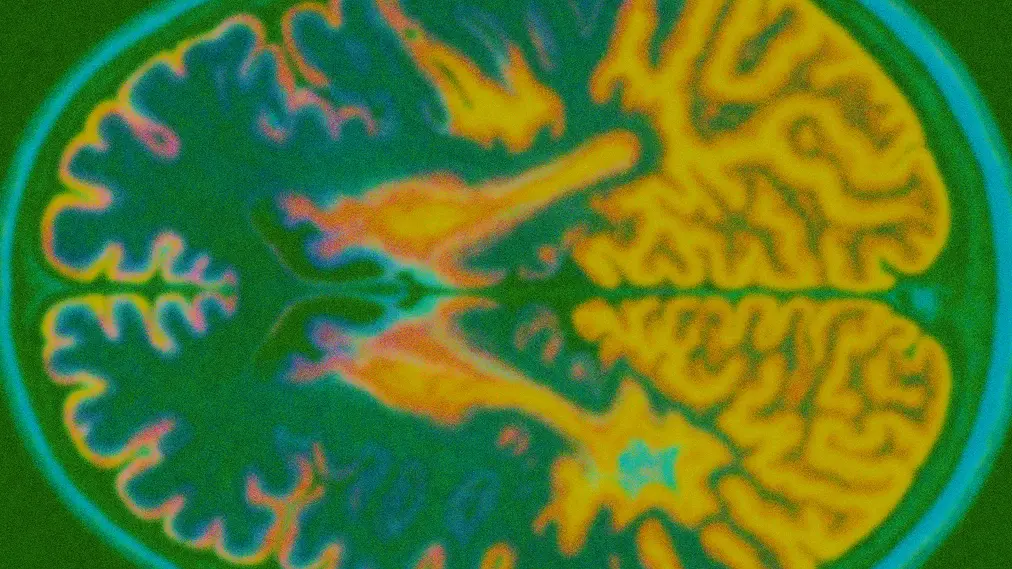Brain-Boosting Foods That Improve Focus, Memory, and Mental Clarity

You are what you eat—and that goes for the mind as well as the body. Here’s how to pack your plate with foods full of brain-friendly nutrients to improve focus and memory and ditch brain fog.
Here’s something I wasn’t prepared for when I became a parent: the ever-present question of “What should we eat for dinner?” I have the best intentions, but it can be a lot to plan and cook for myself and my kids, especially after a long work day when I’m already mentally drained.
Still, I know we are what we eat—and that goes for our brains as much as our bodies. Filling our plates with brain-boosting foods can actually help to improve that drained, scattered, and foggy feeling,giving us more mental (and physical) energy. This becomes even more important as we age and our cognition starts to decline.
Here’s a closer look at the best foods for healthy brain function, focus, and memory.
The role of diet for brain health
As with all other parts of the body, diet plays a huge role in the health of our brains (along with the other pillars of good health: sleep, exercise, and stress management).
And it starts when we’re in the womb. Pregnant women are encouraged to take prenatal vitamins to ensure their diets are complete as a way to protect the fetus from birth defects. Research has found the maternal diet may also influence their children’s long-term cognitive, behavioral, language, motor, and neuropsychological outcomes. Important nutrients for fetal brain development include vitamin B9 (folate), choline, iodine, and iron.
On the other hand, high-fat diets, maternal undernutrition, or inadequate consumption of vitamins and minerals can potentially increase the risk of a child developing attention-deficit/hyperactivity disorder (ADHD), autism spectrum disorder (ASD), learning difficulties, anxiety, and depression. Still, more research is necessary to examine the role of maternal nutrition during pregnancy and offspring neurodevelopment.
As adults, the way we eat can greatly impact our likelihood of developing dementia or Alzheimer’s disease later in life. This is true not only because diet directly influences the development of obesity, cardiovascular disease, and type 2 diabetes—all of which are associated with a greater risk of Alzheimer's disease and dementia—but also because some foods may prevent cognitive decline, or delay its progression..
With its focus on healthy fats, fiber, and antioxidant-rich fruits and veggies, the Mediterranean diet offers benefits for cardiovascular health, weight management, and cancer prevention. But this diet also has neuroprotective effects, reducing the risk of age-related cognitive disorders by 11-30%.
The MIND diet, which is a combo of the Mediterranean diet and the heart health–focused DASH diet, is another brain-boosting option. Like its name suggests, the MIND diet is all about protecting memory and cognitive function. Research has found it goes one step beyond protection: it can actually reverse the negative effects obesity has on cognition and brain structure.
“Both the Mediterranean and MIND diets show promise in reducing the risk of cognitive impairment,” says Lisa Andrews, M.Ed, R.D., L.D., registered dietitian and founder of Sound Bites Nutrition.
Leafy greens, berries, nuts, and whole grains are loaded with antioxidants, which can combat oxidative stress on the cells of the brain and lower inflammation. Systemic inflammation is among the top culprits when it comes to age-related cognitive decline. Loading up on foods full of antioxidants is like wearing an internal protective helmet for our brains.

Key nutrients for brain function
“I advise clients at any age, they should aim to get the most food in their food—meaning make every bit count,” Andrews says. “This is especially important to reduce the risk of dementia and depression.”
Focus on brain-healthy foods that contain these nutrients:
- Omega-3 fatty acids: support neurotransmitter and cognitive function, help to regulate cortisol production (tied to stress responses and mental health), and reduce inflammation
- Vitamin B12: critical for nerve health and neurotransmitter regulation
- Vitamin B9 (folate): breaks down homocysteine—an amino acid that’s been linked to dementia and Alzheimer’s in excess amounts; the supplement form (folic acid) is better absorbed than folate found in food
- Choline: essential for acetylcholine production—a neurotransmitter with important roles in memory and cognitive function
- Magnesium: offers neuroprotection, reduces neuroinflammation, and helps produce ATP—the brain’s main energy source
- Iron: helps brain development, supports the formation of the protective coating around nerves (myelin), plays a role in making and breaking down neurotransmitters, and helps produce energy for brain cells.
- Zinc: aids in neurogenesis, neurotransmission, and neuroplasticity and has antioxidant benefits
- Polyphenols: reduce inflammation and free-radical damage to cells and prevent many chronic diseases linked to cognitive decline
- Vitamin K: has antioxidant and anti-inflammatory properties; keeps blood vessels and arteries healthy, which may be linked to better cognitive function
Standout box: Focus on food first to get these nutrients. But when you need a quick midday boost, it’s Fixie Dust to the rescue. Every stick is packed with brain-loving citicoline (CDP-choline), plus amino acids L-theanine, L-tyrosine, and acetyl L-carnitine, a touch of caffeine, and a hint of sweet-sourness.
Brain-boosting foods
Think of the nutrients in fruits, veggies, and other whole foods working together like an orchestra. Each one complements the other, and the impact is stronger. Sure, some days it’s missing an oboe here or a cello there, but that’s how supplements can pick up a little of the slack.
“Food contains the nutrient, but it also contains other synergistic properties,” says Autumn Beam, M.S., C.N.S., a Los Angeles–based certified holistic clinical nutritionist. “Think of all of the other vitamins, minerals, polyphenols, and flavonoids within that food that work in conjunction with those specific nutrients to feed the body and benefit your health overall.”
But you don’t need to completely overhaul your diet all at once. “I believe in what I like to call the ‘more often than not’ rule,” Beam says. “More often than not, you want to include whole foods in your diet. The ‘than not’ is consuming the sugar and the ultra-processed foods.”
Foods for cognitive functioning
We all have our favorite foods (mine happen to be exclusively carbohydrates. Your brain has foods it loves, too. Munching on these morsels might be able to help you think more quickly and clearly, wipe away brain fog, and fight that tired-brain feeling.
Fatty fish
Fatty fish—think salmon, sardines, and mackerel—are rich in omega-3 fatty acids. Regular consumption of omega-3’s is linked to decreased inflammation, improved cognition, and a reduced risk of age-related cognitive decline. If you don’t eat fish, there are other ways to get omega-3’s into your diet, like walnuts, chia seeds, flax seeds, or algae supplements.
Leafy greens
Get those greens! Spinach, kale, and collard greens are packed with brain-healthy nutrients like folate, vitamin K, and lutein. These compounds are associated with a slower rate of cognitive decline and better memory performance in aging adults.
Nuts and seeds
Walnuts, almonds, and flaxseeds are excellent sources of vitamin E, zinc, and healthy fats. Walnuts, in particular, may support brain plasticity and help reduce oxidative stress, supporting memory and overall cognition.
Whole grains
The fiber in oats, quinoa, and brown rice keep blood sugar levels stable and contain B vitamins, both of which are important for maintaining consistent mental energy and attention throughout the day.
Berries
Berries—particularly blueberries—contain polyphenols and anthocyanins, which reduce oxidative stress and inflammation. Their antioxidant and anti-inflammatory properties protect the brain and reduce disease.
Avocados
Avocados are rich in healthy monounsaturated fats and fiber. Some research has linked avocado consumption to better immediate and delayed recall.
Beets
Beets help to increase nitric oxide levels, which improve blood flow to the brain. Low levels of nitric oxide have been associated with poorer cognitive performance, though research isn’t conclusive that consuming beets improves it.
Greek yogurt
Greek yogurt contains probiotics for gut health and B vitamins for cognitive support. Emerging research shows a potential link between a flourishing gut microbiome and cognitive health. “Researchers believe changes in the gut microbiome may help reduce the risk of neuroinflammation, cognitive impairment, and dementia,” Andrews says.
Foods that help with focus
Feeling scattered and unable to concentrate? Certain food choices may be able to help get your brain back on track.
Eggs
Choline is vital for the production of acetylcholine, which supports learning and memory. Egg yolks are one of the best sources of it. Eggs also contain vitamin B12 and lutein, both of which are linked to improved cognitive performance and focus.
Green tea
Green tea contains L-theanine and caffeine—a power duo that promotes alertness, relaxed calm, and focus all at once. What’s more? Green tea doesn’t tend to cause the jitteriness associated with coffee.
Dark chocolate
Yes, chocolate is candy, but we’re talking about the good, high-quality stuff here, not your basic sugar bombs. Dark chocolate provides a mild dose of caffeine along with cocoa polyphenols. These powerful antioxidant plant chemicals improve blood flow to the brain, reduce mental fatigue, decrease inflammation, and stimulate brain-derived neurotrophic factor (BDNF), a protein that helps neurons grow.
Foods that help with memory
If you’ve suffered one too many memory slips and brain blips lately, try munching on more of these foods.
Broccoli
Broccoli is loaded with lots of vitamins and minerals, but it’s also rich in the phytochemical sulforaphane. Research has found sulforaphane has many neuroprotective and cognitive benefits, including for learning and memory.
Pumpkin seeds
They’re small but mighty. Pumpkin seeds are high in zinc, magnesium, and iron—all of which are important for brain health. Pumpkin seeds also have neuroprotective qualities, including preventing oxidative damage to brain cells.
Turmeric
Turmeric is a spice that contains curcumin, a powerful anti-inflammatory, antioxidant, and neuroprotective polyphenol that can cross the blood-brain barrier. It has been shown to improve memory and attention, reduce stress and anxiety. Curcumin has potential as a treatment for Alzheimer’s disease, as well. But too much curcumin can interact with other medications and lead to serious complications, especially when consuming turmeric as a supplement. So it's safer to consume turmeric in small amounts in food as it minimizes the risk of drug interactions.

Brain-boosting supplements for quick mental clarity
Getting vitamins, minerals, and other nutrients from actual food is the best bet, both Beam and Andrews agree. But in our busy lives,some days our meals fall into the “what’s easiest” category instead of the “what’s healthiest” category. What’s more, people following plant-based diets or other specific eating plans may miss out on getting certain nutrients from their food. For these reasons, supplements might be necessary..
As is the case with any supplement, be sure to consult your healthcare provider first to ensure it’s safe for you and won’t interfere with other medications you may be taking.
Here are some common brain-boosting supplements that may be able to fill in those gaps:
- Omega-3 fatty acids: While one omega-3 (ALA) can be found in plant sources, such as flaxseeds and walnuts, the other other two (DHA and ELA) are more readily available in fish and other animal-based foods. DHA and ELA are particularly important for structural brain support. ALA does convert to DHA and ELA, but not as quickly or fully as getting them straight from fish. Fish-oil supplements are popular, but vegan options that are algae-based also work.
- Citicoline (CDP-choline): Citicoline is a naturally occurring substance that’s also sold as a supplement. After it’s consumed, citicoline breaks down into different compounds, including choline. Choline is an important nutrient for memory and attention. Citicoline is in Fixie Dust for this very reason.
- L-theanine: L-theanine is an amino acid found in tea leaves. While the science isn’t totally conclusive on its benefits for brain health, it can boost the activity of GABA—a neurotransmitter with calming properties. It may also improve focus, especially when it’s paired with caffeine. Again, cue up your daily dose of Fixie Dust to make sure you’re getting these benefits.
- Magnesium L-threonate: There are lots of different forms of magnesium, each with different benefits. Magnesium l-threonate does good things for the brain by improving sleep, mental alertness, and daytime functioning.
- Lion’s mane mushroom: Hands down, lion’s mane is the king of the nootropics. Its various compounds have antioxidant, anti-inflammatory, and neuroprotective properties. Lion’s mane has also been studied for its ability to stimulate nerve growth factor (NGF), which can play a role in protecting against Alzheimer’s disease and other types of dementia.
The bottom line
If we want our noggins cranking at full power, filling our plates with nutrient-rich foods like leafy greens, berries, fatty fish, and seeds is crucial. These foods can support mental clarity, memory, and focus. One more win:they may also slow the cognitive decline that comes with age.
Key takeaways
- Diet plays a key role in the health of our bodies and our brains.
- The Mediterranean and MIND diets have benefits for brain health and may prevent cognitive decline
- Foods rich in vitamins, minerals, omega-3 fatty acids, polyphenols, and even a touch of naturally occurring caffeine may be able to improve memory, focus, and overall cognitive function.
- Many of these nutrients have antioxidant and anti-inflammatory properties that can protect the brain and decrease the risk of cognitive decline—or other diseases that are linked with cognitive decline, like diabetes and obesity.
- Experts agree getting these nutrients through food is best, but supplements can fill nutritional gaps to ensure you’re getting everything you need.
Frequently Asked Questions
Andrews’s favorites are blueberries (for anthocyanins and vitamin C), kale (for beta-carotene), and salmon (for omega-3 fatty acids). Beam agrees with those picks and also adds egg yolks (for choline), cruciferous vegetables like broccoli and Brussels sprouts (for vitamin K and folate), and green tea (for antioxidants).
Salmon gets Andrews’ vote for top brain food. “In addition to omega-3 fatty acids, salmon is also a source of vitamin B12,” she says. “Vitamin B12 deficiency is linked with memory loss and impaired cognition.” Omega-3 and vitamin B12 supplements are good options if you don’t eat fish.
Andrews’ pick is a parfait made with Greek yogurt, blueberries, and chopped walnuts. For a sweet treat, Beam loves dark chocolate for its antioxidant properties and healthy fats.
Research has shown the Mediterranean diet and the MIND diet (a mashup of the Mediterranean and DASH diets) have proven benefits for the brain. Both diets focus on healthy fats, lots of fruit and veggies, nuts, whole grains, and lean protein.
Nutrient deficiencies can make the brain miss out on getting everything it needs to perform at its best. On the flip side, the traditional Western diet, which often contains too many ultra-processed, high-fat, or high-sugar foods, can negatively affect the brain. These foods can cause inflammation and increase the risk of developing another health condition that may lead to dementia or cognitive decline, including obesity, cardiovascular disease, and diabetes.
Latest Posts







.svg)


.jpg)
